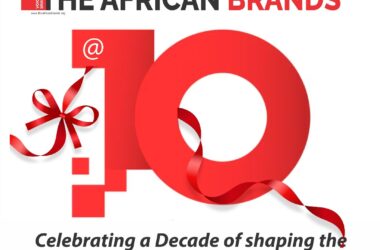Globally, disruption is causing a lot of changes in how things are done. Some call it innovation, but whatever nomenclature one chose to give to it, disruption is changing the narrative in how demands for goods and services are generated and experiential marketing is not an exception.
Today’s face to face marketing engagement, which can also be called experiential marketing, live marketing, event marketing, special events, on-ground marketing, or participation marketing has been experiencing massive disruption occasioned by internet, media and social media.
Experiential marketing is witnessing its greatest evolutionary stage ever as practitioners are working tirelessly to evolve in a better way. They are moving towards leveraging technologies like AI, AR, VR and immersive media to build smarter conversational campaigns that are personalised to build a strong reputation of brand in front of end customers.
In today’s digital world, user generated content is on the rise and becoming a powerful tool as it helps brands tell a diverse and authentic brand story. Brands are using UGC to build a community and shape their marketing strategy. Brands highlight UGC as an opportunity to elaborate on specific exhibits which inspires personalised communication with prospective customers around the exhibit on social media.
Checks have revealed that, any practitioner in the experiential marketing sector who want to remain relevant in the industry must take the new normal seriously and upgrade his skills so as to engage today’s discerning and dynamic consumer in a more rewarding relationship.
The wide spread of Internet penetration and the increasing competition among online retailers which have led to the rise of virtual experiential marketing (VEM), using the Internet and its various channels to create an enriched and engaging experience have contributed enormously to new ways of consumer engagement, most especially when VEM also relies on an electronic environment that engages customers and arouses their emotional responses to create an unparalleled experience and consequently capturing their loyalty.
Now that countries such as Australia among others are extending their period of lockdown, it has become very imperative for practitioners to begin to think of how to create high impact virtual customer experience because of the belief that experience remains the best teacher which will enable customer to create brand loyalty and translate it into meaningful decision to patronise the brand over and over.
Common marketing approach like road shows, face to face marketing, among others that once passed as experiential marketing are likely to be seen as unsafe and unsanitary. Therefore, practitioners must strive towards making a compelling customer value proposition which stems from the understanding of how an online experience can satisfy customer needs.
In Nigeria, there is still, however, a role for real experience-first marketing if done right. The ease of lockdown towards last quarter of last year has proven that people are anxious to get out of the house and socialise in person again. In fact, the and manner people were celebrating the ease of lockdown was pointer to the fact that in-person experiences will be more important moving forward.
However, a good number of customers are skeptical about coming out to socialise with their fellows of the fear of coronaviruse. Experiential marketers need to create the digital customer experience framework to address all areas of interaction between customers and the business, while also use proven tools, of the “7Cs”, content, connectivity, customisation, consumer care, convenience, communication, and community to support the framework.
Similarly, marketer must be aware of when to integrate the online and offline customer experience. This can be achieved by enhancing the virtual customer experience through consistent links with the offline world.
It is a known fact today that the media landscape is cluttered with constant messages however, experiential marketing is one approach that allows for endless creativity and connects brands with fans in exciting and immersive ways. This is why different forms of experiential marketing including installations, prankvertising, live events and viral videos will have meaningful impact with the use of social media because they are conversation starters and allow fans to engage in dialogue.
Analysts believed that, vrtual is the new starting point to engage consumers because their daily lives are still disrupted, they continue to seek solutions for creating new routines.For these Analysts, Consumers are hungry for human connection and a sense of normalcy, and virtual experiences are helping to fill that void.
In fact, findings have shown that, a good number of people have had a virtual social functions that was live streamed. The virtual boom is notable because, until now, few experiential marketers prioritized such offerings. Livestreaming an event, conference, or class was generally done as an afterthought—something to accommodate those who couldn’t attend in person, or, in recent months, something that a brand would pivot to instead of being forced to cancel an event completely.
But the success of such offerings during social distancing has showcased how virtual experiences can amass audiences that were once only believed to exist in stadiums and at festivals. Moving forward, companies will need to approach the execution of virtual events with the same care and attention to detail as they would a physical experience.
Social distancing has inspired people to reflect on what they truly care about. Connecting with friends and family and exploring their own creativity rise to the top of that list. And, Millennials and Generation Z, in particular, are gravitating toward sharing more meaningful content that reflects their values and vision. Hence the rise of TikTok—with its playful videos and participatory challenges—over other social media platforms.
Instead of the Instagram Museums of days past, marketers should focus on micro-events, intimate gatherings, or social clubs designed to help people connect on a deeper level. Experiential marketers will also need to adapt to a world in which creativity-driven shares are more common, and “likes” aren’t the main metric of success.









